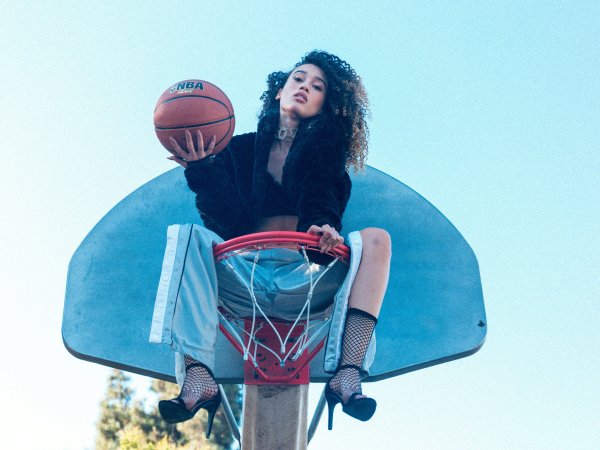- Women love sport - in (almost) all countries
- Female role models promote self-confidence
- Gender data gap: Women's bodies tick differently
- Shrink it and pink it versus function and fashion
- The world needs even more female founders
- Leadership positions in sport: women ahead
- Sponsorship for women pays off sevenfold
- Sports promotion - politics must play its part
Almost half of humanity is female! According to the United Nations, 3.976 billion women and girls live around the globe - that's 49.7% (as of 2022). Studies assume that 30 to 40 percent of women worldwide play sport - although there are major differences between countries:
- USA: proportion of female athletes under 30 years of age over 60%
- Germany: 85% of women play sport, 54% regularly (men 89%) - source: Federal Institute for Sports Science
- Across Europe: women 35%, men 43% participate in sport
- Poland, Spain, Slovakia: 14 percentage points difference between women and men
- Highest participation in sport in the EU: Denmark, Finland, Luxembourg, Netherlands, Sweden - proportion of women almost as high as men (source: European Parliament)
The Olympic Games in Paris were the most gender-balanced in history. "This milestone is a testament to the tireless efforts and remarkable achievements of women athletes who are breaking records, overcoming stereotypes and inspiring future generations," says the UN Women website. Even though the world of women's sport is changing and receiving unprecedented attention and recognition, there is still a long way to go to achieve equality in sport.
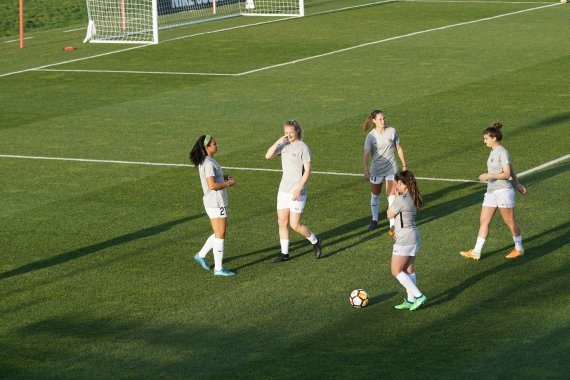
Brazilian footballer Marta Vieira da Silva is just one example of many successful female athletes who have realized that something needs to change. That girls and women all over the world need female role models to give them the courage to live their (sporting) dreams. "I come from a very small town and back then there were no other girls playing soccer in my town. People said soccer wasn't for women. They said I wouldn't make it. Today, I want to use my story to encourage girls everywhere to work towards their goal in which whatever area that may be - in sport, in life, at work," says the UN Women Germany website.
The German long jumper Malaika Mihambo is also a successful female role model. With her association "Malaikas Herzsprung", the Olympic champion is committed to ensuring that primary school children can develop their sporting and personal skills alongside their school sport. She creates the financial framework conditions for membership of the athletics club. Primary school pupils - girls and boys - receive at least one year's free membership of an athletics club in their local area. At ISPO Munich 2024, the Heidelberg native will provide insights into her impressive career as a long jumper and take the audience to the finals of the Olympic Games in Tokyo 2021 and Paris 2024. In a candid interview, she talks about her path to success, explains how sport can promote self-confidence and how she motivates herself every day. Mihambo also talks about everyday racism and what limits discrimination and exclusion should have.
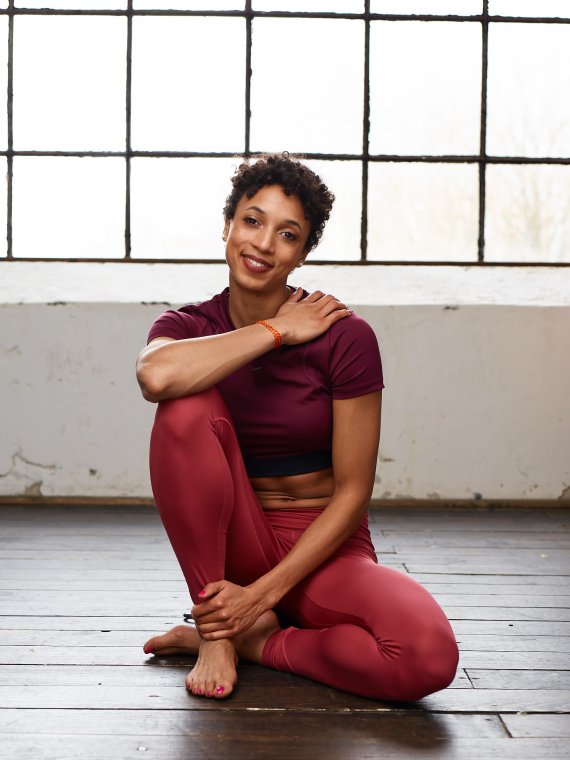
Women are not little men - that should have gotten around by now. Similar to medicine, there is a large research gap between male and female athletes. As the German news magazine Der Spiegel writes: "Since ancient times, the male body has been considered the norm. The suffering of women was ignored, trivialized, ridiculed." This "gender data gap" has serious consequences for female athletes and even endangers their health.
Research into women-specific training methods, such as cycle-oriented training, is still in its infancy. According to Prof. Dr. Jana Strahler (University of Freiburg), there is a lack of generally applicable guidelines for athletic performance over the course of the menstrual cycle due to a lack of high-quality studies. Although studies (McNulty 2020, Sports Med) show a possible higher endurance performance in the early follicular phase, the influence of the cycle on endurance remains unclear.
There are positive effects of strength training in the follicular phase, but they are probably less than the individual adaptability of female athletes. In the area of injuries, the anterior cruciate ligament has been well studied: Women have up to 9.5 times the risk of cruciate ligament ruptures in soccer, which is partly related to anatomy and hormonal influences.
However, Prof. Strahler - who is working on the topic "Effects of the menstrual cycle in competitive sport" at the German Trainers' Summit conference as part of ISPO Munich 2024 is a guest - in this context: "We must not reflexively explain every gender difference with the menstrual cycle. Instead, factors that have to do with gender, but not biology, should be taken into account. The fact that female athletes are more susceptible to certain injuries could not only be hormonal, but also structural: with less professional training conditions and poorer medical, rehabilitative and physiotherapeutic as well as material care."
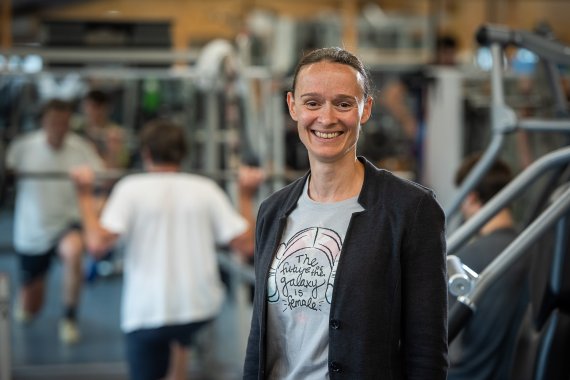
3,976,000,000 women and girls live in the world - and they are not little men. They have different needs and their bodies function differently. For example, according to Prof. Strahler, the body temperature rises by 0.5 to 1 degree during menstruation. This is relevant for warming up, but also for warming down and regeneration. "Materials that are particularly breathable and temperature-regulating during these phases are recommended." There are also studies from the field of competitive sports that show "that a good sports bra is not only important for breast health - it also improves performance". In terms of racing performance, the sports psychologist cites an improvement of up to seven percent with the right sports bra.
However, in reality, sports bras are a difficult topic for female athletes. Biathlete Selina Grotian sees a need to catch up: "Sports bras also sometimes have unfavorable seams and are not always optimal, especially in combination with the chest strap. Although I clean the chest straps, they always have an unpleasant smell." Lara Lessmann feels the same way. The BMX rider would like sports bras "that fit well and don't slip".
Another point that sporting goods manufacturers could pay more attention to, according to Prof. Strahler: "Has the material, the article also been tested on women?" Because women also attach great importance to function and form. Adventurer Sophie Planque is regularly annoyed by the fact that "the men's product is often more resistant than the women's product".
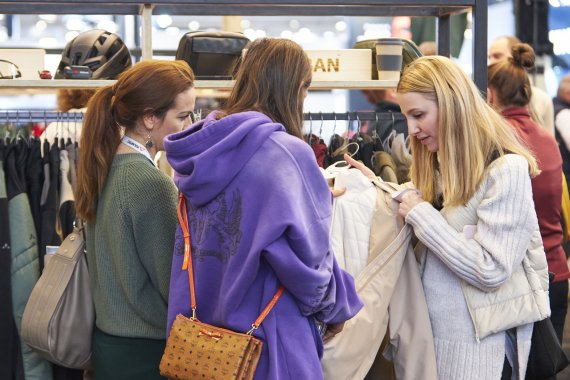
Maria Paulsson Rönnbäck and Jemina Pomoell don't have to worry about whether the item has been tested on women. The two Scandinavians have created an outdoor brand by women for women: Astrid Wild is a Swedish outdoor brand and one of the few companies in the industry founded by women. After five years of successfully establishing itself among female outdoor consumers in Scandinavia, the Swedish brand recently launched its online store for Germany. Whether Kari Traa, La Munt, Girlfriend Collective or Jeanne Baret - brands for women are booming. These brands have recognized that women have special needs when it comes to sportswear.
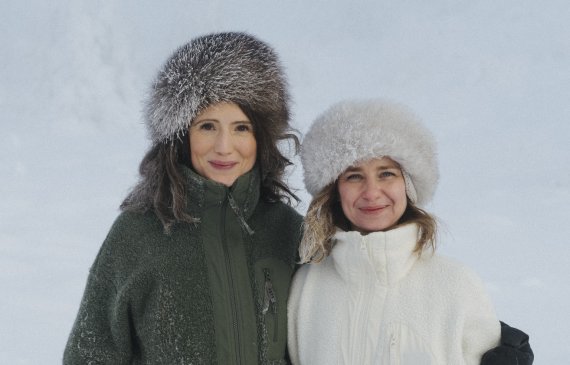
The leadership role of women in sport is a crucial factor in driving investment and better sport policy in relation to gender equality goals, states UN Women. Although considerable progress has been made over the past ten years, there are still gaps, according to the organization.
Take Germany, for example:
- Women make up 51 percent of the population.
- The proportion of female members in organized sport is only 39 percent.
- The proportion of women in management positions in German sport is only 31% (source: German Olympic Sports Confederation).
The organization is therefore considering introducing a quota for its general assembly, even if this may seem like "a tactical challenge for some". However, it is important to reflect that this is not a question of losing power, but rather a move that strengthens the entire team.
Women in management positions bring a variety of perspectives, skills and experiences that broaden the range of strategies and approaches. The equal participation of women also has a positive effect on the consideration and inclusion of other groups that have previously only been given rudimentary or no consideration at all in decision-making processes.
The International Olympic Committee (IOC) has made some progress here: 41% of its members are female - 100% more than in 2013 - and there is more diversity in terms of age and regional representation (source: UN Woman).
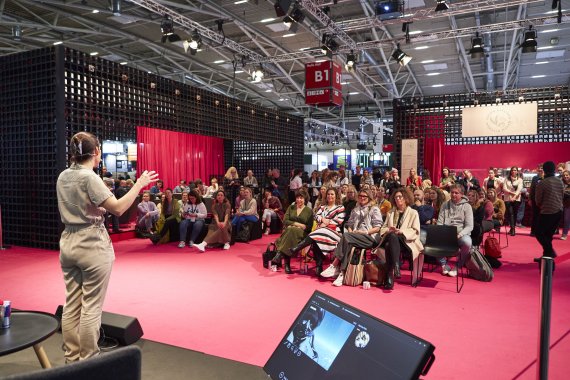
In 2024, there is not a single woman on the Forbes list of the 50 highest-paid athletes in the world. This is despite the fact that the consulting firm Deloitte has found that sponsoring women pays off sevenfold. For every dollar a corporate sponsor spends on women's sport, they get more than seven dollars back. "One of the biggest hurdles that marketers quietly whisper is that brands know they should be doing more for women's sport but don't know where to start," writes English Marketing Week.
Of course, there is also positive news. For example, according to the latest data from Sports United, the number of sponsorship deals in women's professional sport has increased by more than 22 percent compared to the previous year, or Caitlin Clark, superstar of the Women's National Basketball Association (WNBA), has secured an unprecedented sponsorship deal as brand ambassador for sporting goods giant Wilson in 2024.
And what about lucrative sponsorship contracts for female athletes in Germany? Three experts will talk about this at the Sport Marke Medien conference as part of ISPO Munich 2024: Bianca Rech, Director of Women's Soccer, FC Bayern, Julia Retzlaff, Managing Director, Volleyball Bundesliga, and Jessica Weber, Head of Sponsoring, Allianz Germany.
The second women's team sports conference took place in Berlin in October. Despite the enormous potential for success, women's team sports in Germany still lag behind their male counterparts in many respects. According to the organizers, sustainable change must take place at various levels. With this conference, the interest group of German team sports associations "Teamsport Deutschland" is promoting a close alliance between sport and politics "in order to overcome this major and important challenge together". Without support, women's sport will not be able to pick up speed and Germany will fall further behind in international comparison. The Scandinavian countries are already far better positioned. One reason for this is that gender equality also increases the prospect of sporting success. For example, the Norwegian Football Association decided back in 2017 to pay female national team players the same amount as their male colleagues. In addition, the small country completely changed its sports funding and sports concept after its poor performance at the Winter Games in Calgary - with success.
Someone who knows all about these issues is Britta Ernst, President of Special Olympics Germany, former Minister for Education, Youth and Sport
Brandenburg. She will be speaking as part of the "Sport, Brand, Media" congress at ISPO Munich 2024. Her keynote speech will not only address the question of where Germany stands political reality, but also what responsibilities and necessities there are to make sport and youth work accessible to all.
- Awards
- Mountain sports
- Bike
- Fitness
- Health
- ISPO Munich
- Running
- Brands
- Sustainability
- Olympia
- OutDoor
- Promotion
- Sports Business
- Textrends
- Triathlon
- Water sports
- Winter sports
- eSports
- SportsTech
- OutDoor by ISPO
- Heroes
- Transformation
- Sport Fashion
- Urban Culture
- Challenges of a CEO
- Trade fairs
- Sports
- Find the Balance
- Product reviews
- Newsletter Exclusive Area
- Magazine
